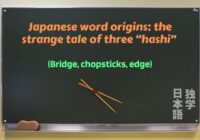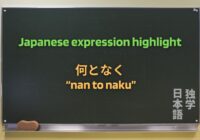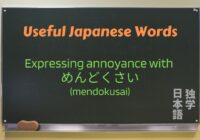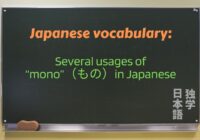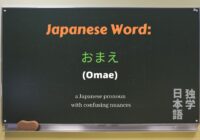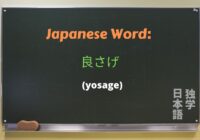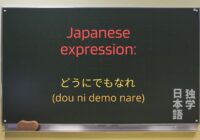Japanese word origins: the strange tale of three “hashi” (Bridge, chopsticks, edge)
If you’ve studied Japanese for any amount of time, you’ve probably noticed that Japanese has many homophones, which are words that sound the same but have different meanings. Generally you can tell them apart from context (and there are also differences in intonation to help differentiate depending on the region, as well as kanji representation),… Read More »
